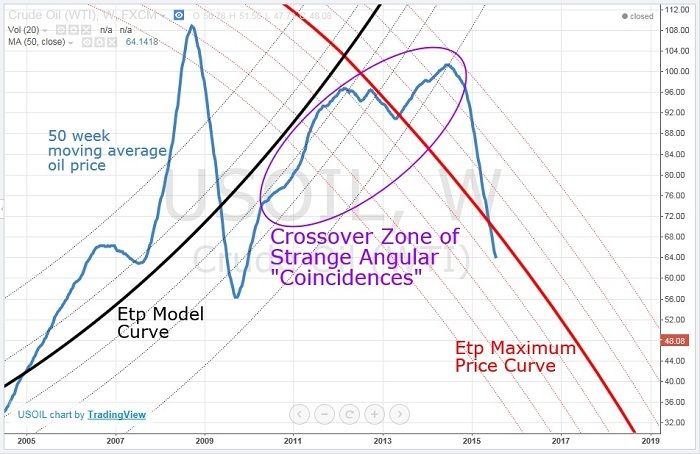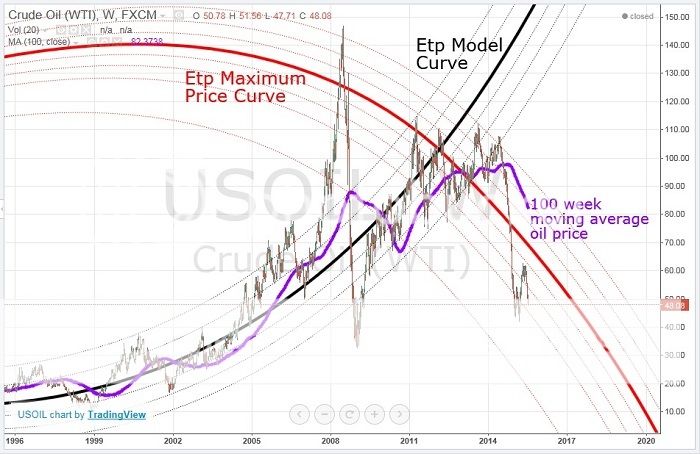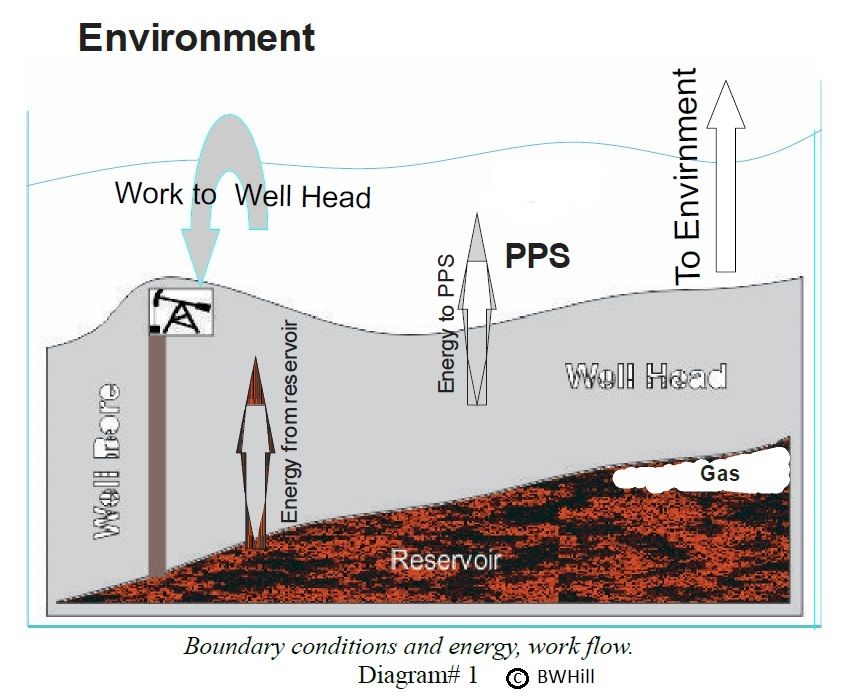In the first place, I have no idea where this data came from, and what it represents.
You asked for a summary because you said you didn't have time to read the thread. I nicely provided a summary for you. Now you are bitching because there isn't enough detail. That is a cheap trick. All of the lame, kneejerk arguments you brought up have already been well covered in the thread. I am not starting over for you. You do not understand the Etp model, so your critique sucks.
I can't believe this involves solving any thermodynamic equation. WTF are they talking about?
Your personal astonishment is not a valid argument.
Like I said, you asked for a summary. Here are some more thermodynamic details for you to chew on:
"Crude oil is used primarily as an energy source; its other uses have only minor commercial value. To be an energy source it must therefore be capable of delivering sufficient energy to support its own production process (extraction, processing and distribution); otherwise it would become an energy sink, as opposed to a source. The Total Production Energy ($$E_{TP}$$) must therefore be equal to, or less than EG, its specific exergy. To determine values for $$E_{TP}$$ the total crude oil production system is analyzed by defining it as three nested Control Volumes within the environment. The three Control Volumes (where a control volume differs from a closed system because it allows energy and mass to pass through it's boundaries) are the reservoir, the well head, and the Petroleum Production System (PPS). The PPS is where the energy that comes from the well head is converted into the work required to extract the oil. The PPS is an area which is distributed within, and throughout the environment. It is where the goods and services needed for the production process originate. This boundary make-up allows other energy, and mass transfers to be considered as exchanges, such as natural gas used in refining, electricity used in well pumping, or water used for reservoir injection."
~BW Hill
Values for $$E_{TP}$$ are derived from the solution of the
Second Law statement, the
Entropy Rate Balance Equation for Control Volumes:
$$\frac{dS_{CV}}{dt}
=\sum_j\frac{\dot{Q}_{j}}{T_{j}}
+\sum_i\dot{m}_{i}s_{i}
-\sum_e\dot{m}_{e}s_{e}
+\dot{\sigma}_{cv}$$
"Where $$\frac{dS_{CV}}{dt}$$ represents the time rate of change of entropy within the control volume. The terms $$\dot{m}_{i}s_{i}$$ and $$\dot{m}_{e}s_{e}$$ account, respectively, for rates of entropy transfer into and out of the control volume accompanying mass flow. The term $$\dot{Q}_{j}$$ represents the time rate of heat transfer at the location on the boundary where the instantaneous temperature is $$T_{j}$$. The ratio $$\frac{\dot{Q}_j}{T_j}$$ accounts for the accompanying rate of entropy transfer. The term $$\dot{\sigma}_{cv}$$ denotes the time rate of entropy production due to irreversibilities within the control volume."
~(Taken from
Fundamentals of Engineering Thermodynamics by Moran and Shapiro)
Because there is only one temperature boundary (at the exit point of the reservoir) and no crude oil enters the reservoir from the environment, the equation reduces to:
$$\frac{dS_{CV}}{dt}=\frac{\dot{Q}_{j}}{T_{j}}-\dot{m}_{e}s_{e}+\dot{\sigma}_{cv}$$
giving: $$\frac{BTU}{sec*°R}$$
For this application, crude oil and water can be treated as incompressible substances. Their specific entropies are only affected by a temperature change.
For specific heats: $$c_{v}=c_{p}=c$$, and $$s_{2}-s_{1}=c*\ln{\frac{T_{2}}{T_{1}}}$$ The reservoir temperature is constant, therefore the entropy of the reservoir must decrease at the same rate that the entropy is transferred from the reservoir by mass flow. Thus, the heat leaving the reservoir is negative in sign and the equation becomes:
$$\frac{\dot{Q}_{j}}{T_{j}}=\dot{\sigma}_{cv}$$
giving: $$\frac{BTU}{sec*°R}$$
The rate of entropy production in the petroleum production system is equal to the rate of heat extracted from the reservoir divided by the reservoir temperature.
The rate of irreversibility production in the petroleum production system therefore becomes:
$$\dot{I_{cv}}=T_{O}*\dot\sigma_{cv}$$
giving: $$\frac{BTU}{sec}$$
Where $$T_{O}$$ equals the standard reference temperature of the environment, 537 °R (77° F).
Therefore:
$$E_{TP}=\int_{t1}^{t2}\dot{I_{cv}}dt$$
giving: $$BTU$$
Because the mass removed from the reservoir is limited to crude oil and water, the increase in $$E_{TP}$$ per billion barrels (Gb) of crude extracted as $$ds=c\frac{dT}{T}$$ is:
(
Equation#7)
$$\frac{E_{TP/lb}}{Gb}
=\begin{bmatrix}\frac{(m_{c}*c_{c}
+m_{w}*c_{w})(T_{R}-T_{O})}{m_{c}} \end{bmatrix}/Gb$$
giving:
BTU/lb/Gb
$$m_{c}$$ = mass of crude, lbs.
$$c_{c}$$ = specific heat of crude, BTU/lb °R
$$m_{w}$$ = mass of water, lbs.
$$c_{w}$$ = specific heat of water, BTU/lb °R
$$T_{R}$$ = reserve temperature, °R
$$T_{O}$$ = standard reference temperature of the environment, 537 °R
$$s_{i}$$ = specific entropy into the control volume
$$s_{e}$$ = specific entropy exiting the control volume
BTU/gal/Gb for 35.7° API crude = BTU/lb/Gb * 7.0479 lb/gal
Evaluation of $$E_{TP}$$ from
Equation# 7 requires the determination of three variables: mass of the crude ($$m_{c}$$) mass of the water ($$m_{w}$$), and the temperature of the reservoir ($$T_{R}$$). These must be determined at time (t).
1) The mass of crude at time (t) is derived from the cumulative production function,
2) the mass of water is derived from the average % surface water cut (fw) of the reservoir,
3) temperature of the reserve is derived from the well depth. This assumes an earth temperature gradient of 1°F increase per 70 feet of depth.
-------------------------------
What exactly do you find wrong with the methodology, above, used to develop the Etp function?
My pseudoscience bullshit meter went off as soon as you drag in thermogoddamits. Of all the freakin' --- eh. Crap.
My pseudoscience bullshit meter went off as soon as you showed up on the thread.
---Futilitist





